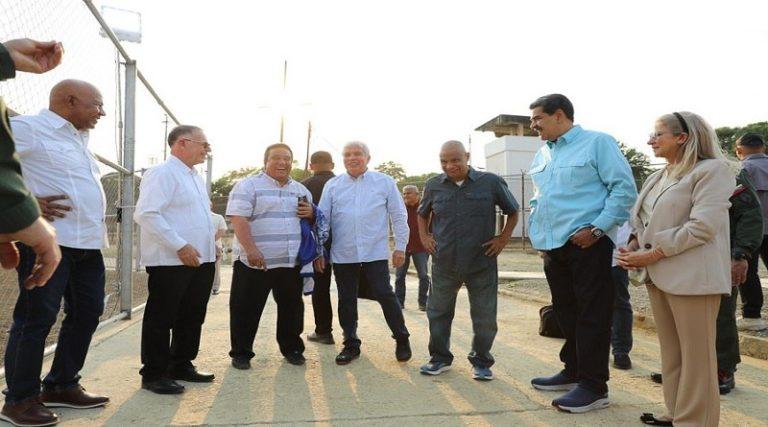The president of the Bolivarian Republic of Venezuela, Nicolás Maduro Moros, visited this March 26, the Yare prison “Cárcel de la Dignidad” (Prison of Dignity), a space where Commander Hugo Chávez was detained, along with several leaders of the Bolivarian Revolutionary Movement 200, and from where he left 30 years ago, to reconstruct the political history of Venezuela, and give life to the Bolivarian project of independence, sovereignty and Latin American union.
Among several of the participants in the Military Rebellion of February 4, 1992, such as Diosdado Cabello, Luis Reyes Reyes, Francisco Javier Arias Cárdenas, Gerardo Márquez and Pedro Alastre, they remembered much of what happened behind those bars, where the future of the homeland, and in which Commander Chávez decided to go to the democratic path and to the catacombs of the people to achieve, through popular support, a revolutionary force that would change the destiny of the nation:
“The kids of the 90s who rang historical time, the bells to raise the Bolívar project,” said President Maduro when he identified the spaces where Commander Chávez lived at certain times with the founding generation of the Bolivarian Revolution, in the place that was museumized to preserve the history that was born there.
The head of state said in one of the prison rooms: “Here he sat us all down, I saw a book that impressed me, I saw two books by (Eduardo) Galeano, I was a left-wing boy, a revolutionary. He told us: Are you hungry? He took out the food his family had brought him. We had not eaten and he served us. It was a gesture that really touched me. He gave us his own food, he gave us cookies, coffee. Chávez, the Chávez we knew, (it) was the first time I saw him in my life, on December 16, 1993.”
He revealed that they talked for 40 minutes that same day: “We have to build a powerful popular force in neighborhoods, unions, universities; Everything that is going to happen from now on is decided with a powerful popular force, he said. He outlined a strategy that I thought was spectacular. He asked me my name and he told me that from today your name is Green and he gave me a card with his phone number and some tasks on the streets. I called him in the afternoons, from public telephones, we toured part of Venezuela and carried out those tasks,” explained President Maduro.
For her part, deputy Cilia Flores indicated that she used to go weekly to the Yare prison: “I met them all and I knew what that feeling was for what they did and the pride we felt. I not only came with my feelings but with everything that came in the streets that sent greetings, messages and letters and I carried the answers.”
